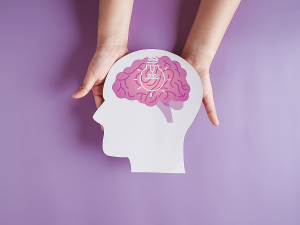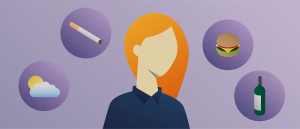Navigating Nutrition: A Guide to Healthy Eating Habits for Those with Disabilities

Living with a disability can present various challenges, including maintaining a healthy diet. Eating healthy is essential for everyone, but for individuals with disabilities, it can be more challenging to maintain a balanced and nutritious diet. In this blog post, we will discuss navigating nutrition and provide useful tips to help you develop healthy eating habits that will improve your quality of life.
1. Plan Ahead for eating healthy:
Planning ahead is one of the best things you can do to ensure that you maintain a healthy diet. Also, make a meal schedule for the week, and be sure to have all necessary ingredients on hand. Because, this will minimise the chances of grabbing unhealthy options in a hurry or ordering takeout at the last minute.
2. Make Use of Convenience Foods:
Though it is best to consume fresh, whole foods, but if that is not possible, make use of frozen or pre-washed fruits and vegetables. Also, we can used canned beans, and other products that do not contain preservatives. Likewise, these foods can save time and make meal prep more manageable.
3. Portion Your Food Intake for healthy habits:
Portion control is crucial to healthy eating. Similarly, try using smaller plates to help regulate your food intake. If possible, pre-portion your meals or snacks in small containers. So, that you can grab them easily and avoid overeating.
4. Seek Professional Help for eating healthy habits:
If you have a disability that makes eating difficult or requires a specialised diet, consult a registered dietitian. Then, they can help you develop a meal plan that suits your needs. Similarly, take into account any dietary restrictions you might have, and offer excellent advice on healthy eating.
5. Listen to Your Body:
Lastly, everyone’s body is different, and understanding your body is important when making healthy choices. So, pay close attention to how different foods make you feel. Furthermore, if you have a food intolerance or allergy, your body will tell you by reacting differently to certain foods. So, listen to these indications to maintain optimal health and wellbeing.
Conclusion:
In conclusion, navigating nutrition while managing a disability is not easy, but with a few simple strategies, it can be achieved. Furthermore, planning ahead, using convenience foods, portioning your food intake, seeking professional help, and listening to your body will undoubtedly lead to a healthier, happier life. Remember, maintaining a healthy diet is crucial for individuals with or without disabilities, and setting good habits will benefit everyone in the long run.
Book a free Consultation with us today!
Mobile : 1800960068
Email : contactus@iseeksupport.au









